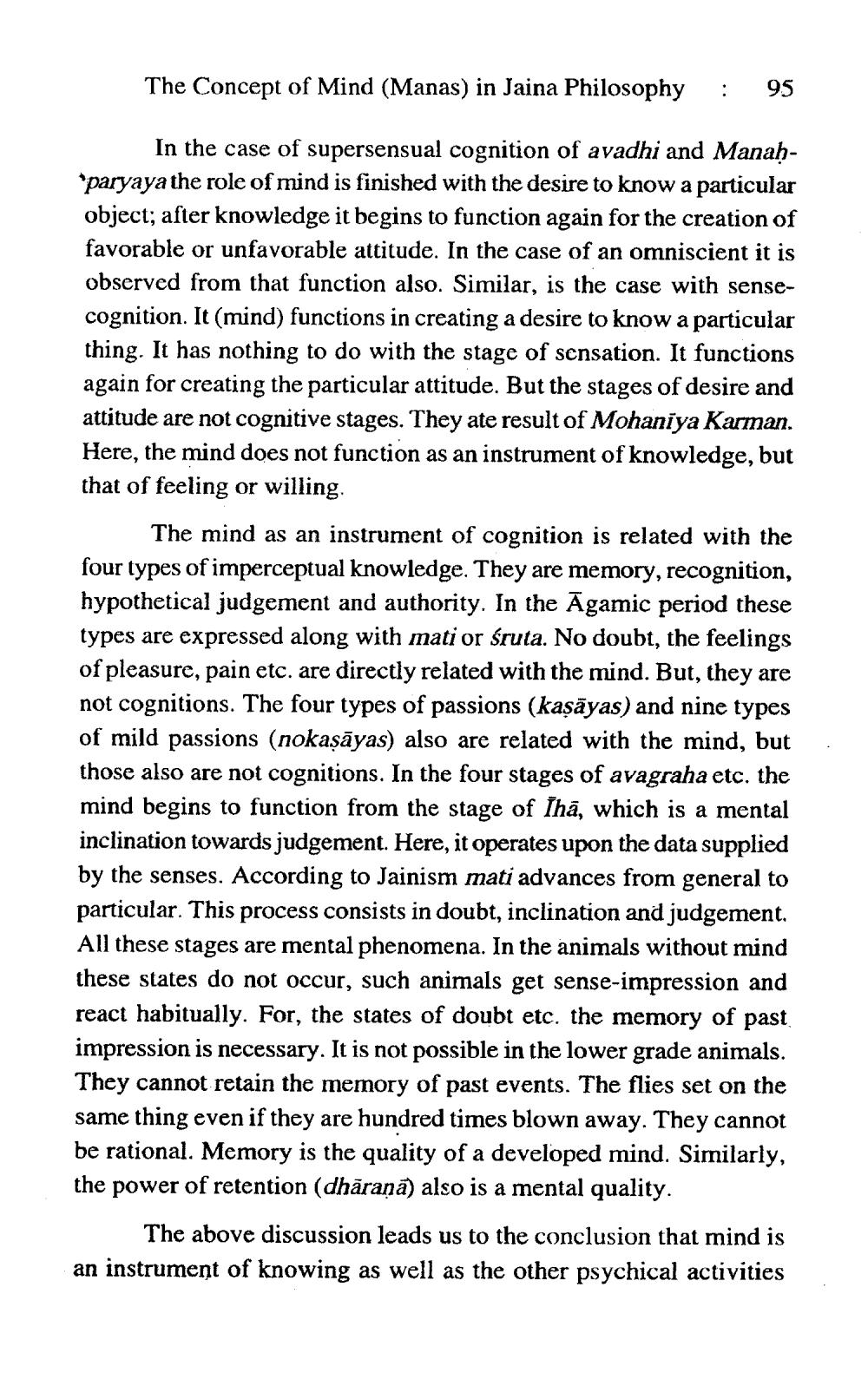________________
The Concept of Mind (Manas) in Jaina Philosophy
:
95
In the case of supersensual cognition of avadhi and Manah*paryaya the role of mind is finished with the desire to know a particular object; after knowledge it begins to function again for the creation of favorable or unfavorable attitude. In the case of an omniscient it is observed from that function also. Similar, is the case with sensecognition. It (mind) functions in creating a desire to know a particular thing. It has nothing to do with the stage of sensation. It functions again for creating the particular attitude. But the stages of desire and attitude are not cognitive stages. They ate result of Mohaniya Karman. Here, the mind does not function as an instrument of knowledge, but that of feeling or willing.
The mind as an instrument of cognition is related with the four types of imperceptual knowledge. They are memory, recognition, hypothetical judgement and authority. In the Āgamic period these types are expressed along with mati or śruta. No doubt, the feelings of pleasure, pain etc. are directly related with the mind. But, they are not cognitions. The four types of passions (kaşāyas) and nine types of mild passions (nokaṣāyas) also are related with the mind, but those also are not cognitions. In the four stages of avagraha etc. the mind begins to function from the stage of Thā, which is a mental inclination towards judgement. Here, it operates upon the data supplied by the senses. According to Jainism mati advances from general to particular. This process consists in doubt, inclination and judgement. All these stages are mental phenomena. In the animals without mind these states do not occur, such animals get sense-impression and react habitually. For, the states of doubt etc. the memory of past impression is necessary. It is not possible in the lower grade animals. They cannot retain the memory of past events. The flies set on the same thing even if they are hundred times blown away. They cannot be rational. Memory is the quality of a developed mind. Similarly, the power of retention (dhāraṇā) also is a mental quality.
The above discussion leads us to the conclusion that mind is an instrument of knowing as well as the other psychical activities




